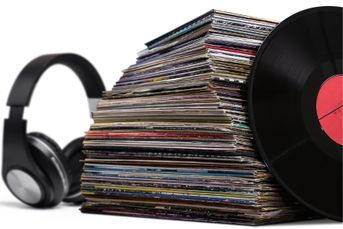How to really improve your credit score
Credit scores have a big impact on your daily life, often in ways you don't realize
How’s your credit rating?
Balances on mortgage, auto and student loans in the U.S. all rose in the first quarter, according to a report from the Federal Reserve Bank of New York. Credit card balances were an exception, but card delinquencies are trending up, the Fed noted. That’s worrisome. Credit scores have a big impact on consumers’ daily lives, often in ways they don’t realize.
So we talked with someone who knows all about the different ways credit scores affect us: Liz Weston, author of “Your Credit Score,” a book about “how to improve the 3-digit number that shapes your financial future,” and a columnist at NerdWallet. Ms. Weston spoke about the ways bad credit jacks up prices for basic consumer needs, offered advice about those store credit cards that tempt consumers with 0% financing on purchases and debunked a few credit card myths while she was at it.
Here are excerpts of our conversation, edited for clarity and length.
How can bad credit affect our daily lives?
You don’t typically know what you’re missing when you don’t have good credit. T-Mobile said a couple of years ago that half of its customers weren’t getting its best deals on phones because of their credit. In a NerdWallet survey, the majority of people knew that landlords use credit scores in making decisions about who to rent to, but many people still didn’t know, and they were surprised at how bad credit can increase the size of utility deposits.People also weren’t aware of how their credit score can affect auto insurance premiums. A 2015 Consumer Reports investigation found that sometimes your credit score is more important than your driving record with auto insurers. There’s a connection between a person’s credit score and how much they wind up costing an insurer. Nobody knows why. Bad credit is one of those spiraling things. Because you lose your job, your credit takes a hit, and all of a sudden, everything gets more expensive, which makes it harder to get by. No wonder people hate credit scores. When they’re bad, they just make things worse. When they’re good, though, they dramatically improve your life. You pay less for insurance, get better cell phone deals, better credit card deals.
So what’s a good credit score?
Life starts getting more expensive once your scores slip below the 750 range. That Consumer Reports auto insurance study found that just having “good” scores, rather than excellent ones, could cost you hundreds of dollars in higher premiums each year.
But generally speaking, costs get higher and life gets harder once your scores slip below the 680 range. Below 620, most lenders would consider you “subprime,” which makes credit very hard to get and expensive.
Most of us think of ourselves as having just one credit score. That’s not true, though, right?
The reality is that you have hundreds of scores. Even if you’re just talking about FICO scores, there are different versions of the scores and different generations of them. [FICO scores, a product of Fair Isaac Corp., are widely used. There are the FICO scores consumers see, and then there are scores used by mortgage companies, auto lenders and bank card providers. Fair Isaac tweaks the formula from time to time, but companies may not always switch to the updated score. The latest version is FICO 9; FICO 8 is more commonly used.]
Wells Fargo, for example, may give me my Bankcard Score 2 from Experian. If I was to get a car, my auto lender might use Auto Score 8 from Equifax. We don’t have control over what scores the three major credit bureaus use [the third is TransUnion], and they might be very different from the one we are actually looking at. Bankcard and Auto Scores go from 250 to 900, for example, whereas the usual FICO score ranges from 300 to 850.
Can we find out what all those other scores are?
You can go to myfico.com and cough up about $60 to get FICO 8’s from each of the three bureaus and see the scores that are most used in mortgage, auto and credit card lending. You can see your FICO 9’s as well, so you can see the range. The first time I did it, I was blown away — there was a 100-point difference between some of the scores. Which were all good or excellent, of course.The times I’d recommend buying your scores from myfico.com are when you’re about to get an auto loan or lease, and when you want to get a mortgage. The FICO scores that are being used for mortgage decisions are several generations out of date, so the scores you may get from freecreditscore.com, or from bank cards that offer free FICO scores to customers, might not be in the same ballpark as the ones your mortgage lender looks at. Once you have the relevant scores, you can check on myfico.com to see what loan rates to expect. That’s particularly important if you’re getting a car, because dealerships are notorious for playing games with loan markups.
What are some of the biggest myths about credit scores?
One that keeps coming up is about how carrying a balance is good for your score. I don’t know where that one got started, but it just will not die. There is no advantage to carrying a balance over to the next month.
There is something now called trended data, and some credit card companies report who pays their balance down each month and who doesn’t. They discovered that people who pay their balances in full are much less likely to default on a credit line. So Fannie Mae and Freddie Mac told mortgage lenders that if this information is available, they should use it in their decision in a positive way if a borrower is on the margin and might be denied. It could help push that borrower over to an acceptance.The way Fannie and Freddie instituted this, they said it can be used to help someone, not hurt them. Who knows in the future how the information will be used? If it’s predictive, it’s predictive, and someone is going to want to use it against you.
What are some other common misperceptions?
That checking your credit hurts your score. You really do need to know your credit score or at least be in the right ball park. People think that credit scores are more stable than they are. They actually move around a bit.
Just get a free VantageScore, which many credit websites offer, and monitor it every month. [VantageScores, a measure created by the three major credit reporting bureaus, compete with FICO scores.] If you skip one payment on your credit card, you can knock 100 points off your score. If you have a 780 score and you are 30 days late in paying, that can knock off 100 points. It takes a long time to get those points back. You can really screw things up overnight.
A lot of stores offer 0% financing for purchases if people open a card. Is having a lot of those cards bad for credit scores?
These are typically not cards with super-high limits, so if you want to close them, it’s not going to be a crisis. [If they had high limits and you closed a bunch of them, you could ding your credit score, because you’d be sharply lowering your total available credit limit. Then, if your spending stayed the same or rose, it would look like you were suddenly using a lot more of your credit. Using about 30% or more of your limit can hurt your score, by one rule of thumb.]
I think we’ve made people too scared of closing out cards. Every card is something you have to monitor, watch out for fraud, make sure you’re not paying an annual fee. Just in terms of the bandwidth overload of having too many cards, once you’re done with these cards I don’t think there’s a big downside to closing them — as long as you have access to other credit, and you’re not closing it right before you’re trying to get another credit line.
My concern would be less about having lots of these cards hurting your score and more about a card being taken over and misused. Even if you’re not liable, and it doesn’t affect your credit record, it’s a pain.
Any advice about credit for recent college graduates?
Have a credit card and use it, but pay it off in full every month and don’t use more than 30% of the credit card limit. And remember that you don’t have to pay interest on your credit card to have a good credit score.
Learn more about reprints and licensing for this article.








